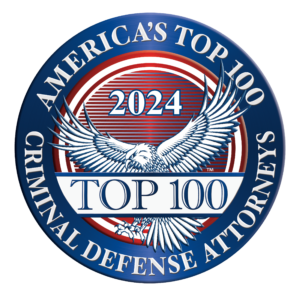Drug Trafficking Lawyer Serving Detroit, MI
Leading Detroit Federal Drug Trafficking Attorneys in Detroit
Bajoka Law — Top Criminal Defense Attorneys for Drug Trafficking
WHAT IS DRUG TRAFFICKING?
Federal drug trafficking involves the possession, sale, transportation, and manufacture of illegal drugs. When drug trafficking involved heavy quantities of drugs or large amounts of money the FBI and DEA is usually involved. There are a variety of factors that can take a drug trafficking case out of state court and into federal court. If a wide-scale scheme is shown or drugs are being moved from state to state, then a drug trafficking charge will likely become a federal matter. The FBI, DEA and other related agencies have long made federal drug trafficking a prime focus in their crime-fighting efforts. You can even be prosecuted for drug trafficking if you have never stepped foot in the United States. If you are being investigated for a drug trafficking it is important to know that the federal government is not taking these cases lightly. Expect the full force of the federal government in investigating and prosecuting drug trafficking cases.
WHAT ARE THE POSSIBLE PUNISHMENTS FOR DRUG TRAFFICKING?
- Prison: A first offense cocaine trafficking conviction under 5kg but over 500g can result in a minimum sentence of 5 years in prison. For heroin trafficking over 1kg you can receive a minimum sentence of 10 years in prison up to life. If a death or serious injury results from fentanyl trafficking, this minimum can go up to 20 years in prison. As you can see, many options are on the table in terms of potential prison sentences for a drug trafficking conviction.
- Probation: Probation is an alternative to jail that a judge can sentence someone for a drug trafficking conviction. As part of the probation, the offender will have to follow certain guidelines, may have to submit for drug or alcohol screening, and will have an assigned probation agent that they will need to stay in close contact with. Violations of probation can result in lengthy prison sentences.
- Restitution: A judge can order an offender to pay back the money improperly obtained due to their illegal activity. This number can easily end up in the millions of dollars.
- Fines: Anyone convicted of a drug trafficking offense is subject to hefty fines. Drug trafficking committed by an individual can lead to a $2 million fine. A drug trafficking conspiracy committed by two people or more can lead to a $5 million fine. A second offense fine can be as high as $10 million. Again, it is easy to see how these fines can easily end up in the tens of millions of dollars.
- Other: A drug trafficking conviction can result in forfeitures of both money and property.
WHAT ARE SOME EXAMPLES OF DRUG TRAFFICKING?
Common examples of drug trafficking include:
- Bringing in illegal drugs from other countries
- Possessing illegal drugs
- Being involved in the transportation of illegal drugs
- Being involved in the sale or distribution of illegal drugs
- Being involved in the manufacturing of illegal drugs
- Marijuana trafficking, as it is still federally illegal
The different activities that could be present during the commission of drug trafficking can lead to various criminal charges. The specific charges under the umbrella of federal drug trafficking are:
- Drug Trafficking (21 U.S.C. § 841)
- Drug Possession (21 U.S.C. § 844)
- Drug Paraphernalia (21 U.S.C. § 863)
- Drug Trafficking Close to a University (21 U.S.C. § 860)
- Drug Trafficking Conspiracy (21 U.S.C. § 846)
WHAT ARE THE POSSIBLE DEFENSES?
Major defenses relating to the prosecution of federal drug trafficking are often constitutional in nature. Were there any constitutional violations in the search that led to authorities finding illegal drugs? Did the officers have probable cause to search you or your property? Mere presence is not enough to prove criminality. Just being there doesn’t make you guilty of anything. Were you simply in the wrong place at the wrong time? Were you threatened or coerced into participating in the illegal acts? Were you even there? Do you have a good alibi? Did the government entrap you into drug trafficking? These are just a few of the defenses and questions a seasoned federal drug trafficking attorney will ask while building a proper defense for a drug trafficking case.
ANY FURTHER QUESTIONS?
If you or a loved one is being investigated for federal drug trafficking or have already been indicted, you might be asking yourself, what do I do now? Finding a website such as this can be a great resource, but it is not a substitute for the advice of an experienced attorney.
EXPERIENCE MATTERS
Most attorneys have never stepped foot in a federal courthouse, much less have actually been a part of a federal jury trial. Do you really want your case to be the first your attorney has actually defended in federal court? While the answer to that question might be easy, choosing the right attorney might not be as simple. The right attorney for a federal drug trafficking case is not someone looking to sign up every person that walks through their door. The right attorney for a federal drug trafficking case is one that has the proper experience, time, and resources to put into defending your case against the power of the government. The United States government has unlimited resources when it comes to investigating and building cases. Your first step towards leveling the playing field is hiring an attorney who brings years of successful federal criminal defense experience to the table. At Bajoka Law in Detroit, we lean on this past experience to help bring future success.





